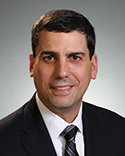Gretchen L. Temeles authored the article, “The Next Cannabis? Patent Protection for Psychedelic Therapeutics,” for The Legal Intelligencer.
Dr. Temeles writes:
Along with cannabis, the Controlled Substances Act of 1970 designated many psychedelic compounds as Schedule I controlled substances. Schedule I controlled substances are considered to have no legitimate medical use and their possession and sale is illegal under U.S. federal law. Recent efforts to legalize psychedelics have followed in the wake of legalization of medical and recreational cannabis by multiple states. In the last two years, Denver, Colorado, and Oakland and Santa Cruz, California, decriminalized possession of psilocybin-containing mushrooms and/or plants having psychedelic properties. In February 2020, the Washington, D.C., Board of Elections decided to advance an initiative to decriminalize possession of any plant or fungus containing psilocybin and other psychedelic compounds. At the same time, scientific researchers have been looking at old research in a new light. The FDA has even shown willingness to support approval of psychedelic therapeutics. The renewed interest in psychedelics has spawned an increase in commercial activity and an increase in the number of patent applications and granted patents covering psychedelics.
To read the full article, visit the Duane Morris website.

 Duane Morris partner
Duane Morris partner